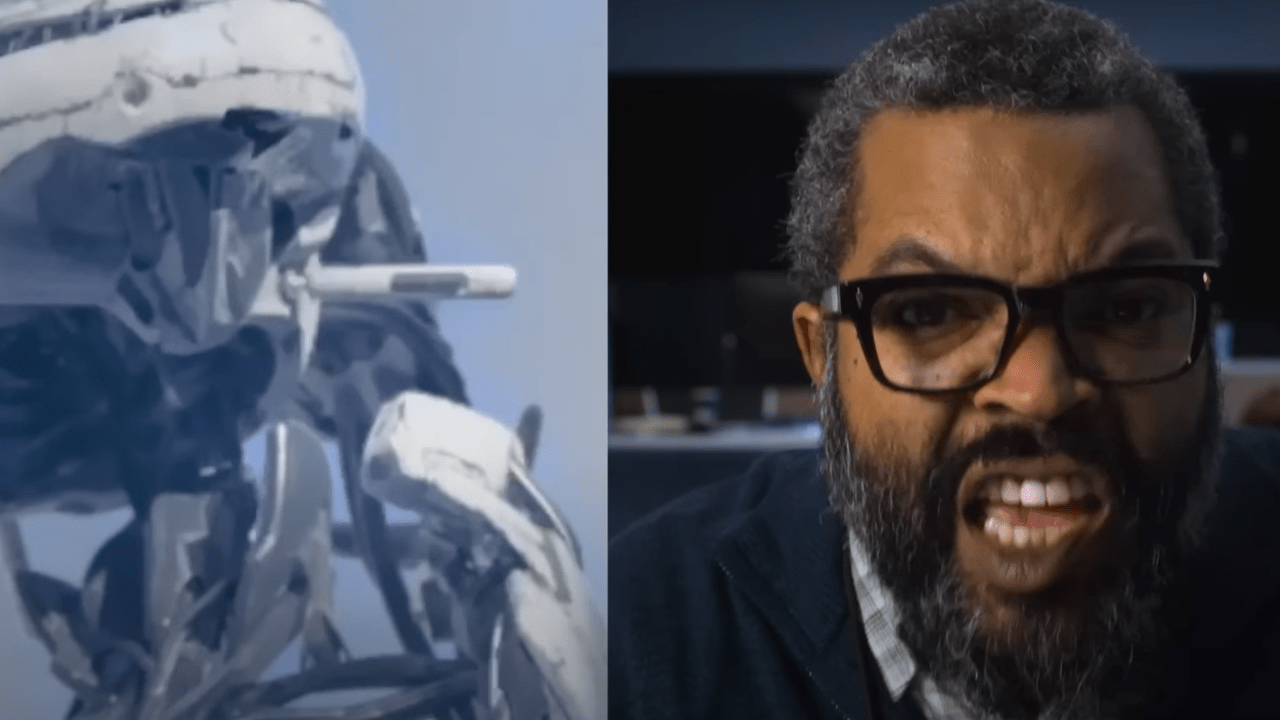
This War of the Worlds Review contains Spoilers…
2025’s “War of the Worlds” – I must confess, this film didn’t pay tribute to the original; rather, it left a disappointing mark on its legacy. Here’s my take on it.
2025’s “War of the Worlds” adaptation is neither a reboot nor an improvement; it’s a sterile, creatively devoid attempt at screenplay storytelling that not only disrespects its original source material but also underestimates the intelligence of its viewers. The term “parody” suggests the film possesses some self-awareness about the humor it’s trying to deliver. However, this production lacks such understanding.

Instead of merely being a poorly-made film, it serves as a warning about the dangerous blend of careless corporate marketing, creative sloppiness, and storytelling neglect – a concoction so inadequate it’s hard to label it cinematic at all.
A War of the Worlds, Waged by Keyboard
Instead of building the narrative around grand visuals, immense settings, or deep emotions, this film is narrated exclusively from a digital perspective, figuratively speaking.

The whole movie unfolds using various video sources like webcams, smartphone videos, security cameras, and computer screen recordings, which is reminiscent of what’s shown on a screen. This “screen-based” style, popularized in certain horror and thriller productions, unfortunately comes across as an overused trick in this film. The story starts with Homeland Security analyst Will Radford (played by Ice Cube) in front of multiple screens, and by the end of the movie, he’s still there after ninety minutes.
That’s not an exaggeration.
Radford prefers not to join the fray, instead choosing to watch, offer his thoughts, and let out an occasional sigh.
The arrival of the extraterrestrial attack is disguised as meteor showers leading to tripods, yet they seldom manifest themselves. Instead, we get wind of them through blurry security camera footage, news graphics, and video conferences. The occasional scenes of devastation seem more like generic assets in a low-quality video game.
As a film enthusiast, I must say, when skillfully employed, this narrative style can really crank up the suspense. But unfortunately, in this case, it merely leaves me feeling drained and disengaged.
Wells Rolled Over in His Grave
In 1898, when H.G. Wells released The War of the Worlds, it wasn’t merely the debut of an alien invasion story; rather, it was a harsh critique of British colonialism, a contemplation on human arrogance, and a tale that portrayed ordinary individuals grappling with overwhelming, unfathomable stress. The fear wasn’t solely from the Martians, but from the revelation that we might not be the pinnacle of creation.
This movie disregards previous elements and instead transforms the plot into a slow critique of surveillance society and digital addiction. In this new take, the extraterrestrials are portrayed as data-feeding organisms (similar to Technovore from Iron Man comics), releasing spider-like drones to penetrate major data hubs worldwide and deplete global digital resources. The downfall of the world isn’t caused by destruction, but rather through network failures.

In my perspective as a movie reviewer, the pinnacle moment comes when Radford’s daughter, an employee at a biotech startup, dispatches a cyber-vaccine on a USB stick, transported by an Amazon Prime Air drone, to Radford’s server farm. He inserts it, the alien malware is neutralized, and peace is restored. To put it kindly, this scene could be seen as a critique of corporate infrastructure reliance. Alternatively, one might argue more bluntly that it serves as extended product promotion.
A Protagonist Who Never Gets Up
It’s surprising to think that this is the same Ice Cube who starred in movies like “Three Kings” and “Boyz n the Hood”. In this film, however, his significant presence is limited to static webcam shots and voiceovers. Throughout the movie, Radford doesn’t interact with the catastrophic threat at hand. He remains unchanged, without growth or suffering. Notably, he doesn’t even rise from his seat.

The stillness in this movie – both physically and metaphorically – reflects its overall essence. There’s no heartfelt emotion, no rhythmic flow of events, no personal growth for the characters. Instead, they seem to only serve as sources of information, delivering news or vague comments about our interconnectedness while the world outside is in chaos.
An Abomination by Committee
The film seems more like a product crafted by a marketing team, who used AI to generate lines based on popular keywords such as “cybersecurity,” “AI threat,” “screen-life format,” “drones,” and “Amazon integration.” However, it lacks the essential elements of a movie, including a compelling storyline, well-developed characters, a defining theme, and a clear purpose.

MasteroftheTDS, in his critique of the film “Criticless”, expresses strong disapproval: “This movie is an appalling insult to H.G. Wells. Merely using his name for this production is a crime… I find it hard to believe that anyone approved of this… It needs to be completely removed from the internet, with severe and permanent measures, so no one can ever locate it again.
(Full disclosure: MasteroftheTDS is the husband of Raven Redgrave.)
It’s tough to dispute such an opinion. This movie doesn’t fall short due to lack of creativity, but rather due to a lack of meaningful content. The issue isn’t that the film attempted something new, but rather that it failed to deliver any significant or impactful material altogether.
Missed Opportunities and Misguided Choices
As I ponder for a while, let’s consider the cinematic endeavor at hand. This movie attempts to delve into the intriguing concept of a sci-fi thriller set in the realm of screen-life, where mankind might unknowingly surrender control over our digital world during a first-contact event. With a bit of adjustment, it could have been captivating.
Or, it could have been a compelling, low-budget drama focusing on an individual ensnared within the confines of a digital screen, witnessing humanity’s collapse, grappling with guilt and powerlessness. Such a narrative might have carried significant emotional resonance.

However, this movie doesn’t fully explore or develop any of its themes. Instead, it hints at concepts without providing a deeper analysis. Its political and scientific perspectives are superficial, the science is more fictional than factual, and the characters seem to be mere messengers for information rather than complex personalities. The Martians, who were previously portrayed vividly in other adaptations, become little more than background noise, barely noticeable in this version.
This isn’t a reinterpretation of Wells. It’s a simulation of relevance.
If the intention was to revitalize an old story, this movie seemingly failed and suffocated it beneath thick blankets of digital isolation and commercial mediocrity instead. It’s challenging not to perceive this production as a symbol of a concerning trend in contemporary sci-fi: the allure to swap depth for superficiality, relevance for emotional impact, and artificial intelligence for creativity. What H.G. Wells penned was ageless. However, what this movie offers is unmemorable.

2025’s “War of the Worlds” is not just a poorly made film; instead, it’s a deeply flawed one. By eliminating all traces of human emotion, suspense, and compelling storytelling from a tale about mankind grappling with its own inconsequentiality, it transforms a literary gem into a commercial endeavor.
Ultimately, it’s not only H.G. Wells that warrants improved treatment; we all do, as this movie is a disrespectful act towards everyone involved.
Read More
- Everything We Know About Georgie & Mandy’s First Marriage Season 3
- Прогноз нефти
- Five Nights At Freddy’s 2 Review: The Video Game Movie Sequel Limbos Under The Low Bar Set By The First Film
- Belissa Escobedo, on Happy’s Place
- Пермэнергосбыт акции прогноз. Цена акций PMSB
- Playdate’s Ending On Amazon Is So WTF I Need To Talk About It
- CBS Effectively Explains Why Tracker Got Rid Of Bobby & Velma
- Серебро прогноз
- Золото прогноз
- One Piece: Egghead Arc Episode 1140 Release Date, Time, Where to Watch
2025-08-06 19:22